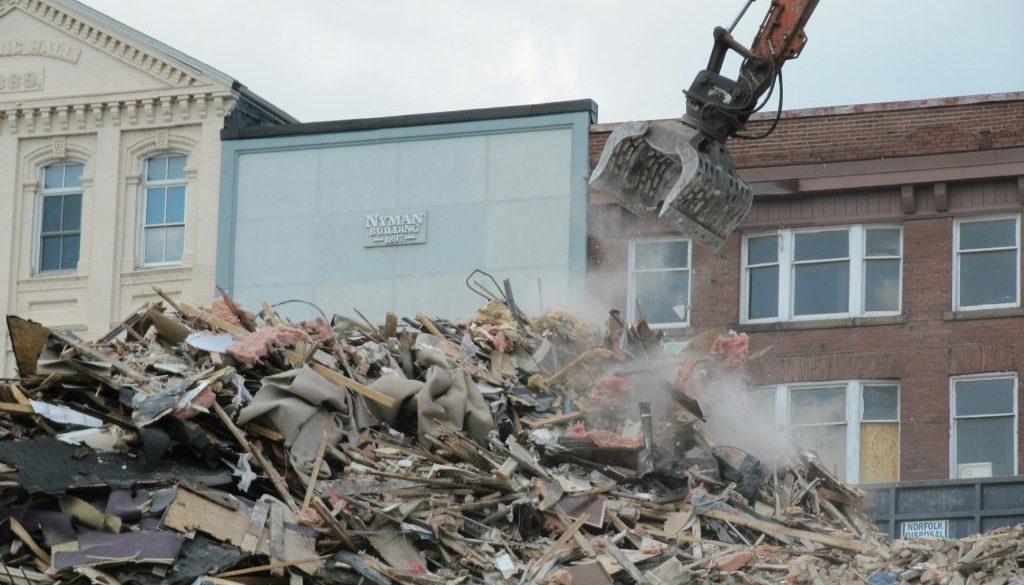Construction and demolition activities are known to generate a substantial amount of waste material, which can have a significant impact on both the environment and project costs when not managed correctly. A forward-thinking and sustainable approach to waste management within the construction industry is not only beneficial for the environment but also offers potential cost savings and contributes to a more efficient project workflow.
In this comprehensive guide, we will discuss the importance of sustainable waste management practices in the construction industry, highlighting the environmental, economic, and social benefits it can provide. Additionally, we will explore essential strategies for achieving efficient and eco-friendly construction waste management throughout your project. Learn how partnering with an environmentally-focused waste management service like Enviro Skip Hire can help you reduce your waste footprint, comply with local regulations, and gain a competitive edge while contributing to a greener built environment.
Get ready to delve into the world of sustainable construction waste management and understand how embracing eco-friendly practices can enhance your project outcomes, create value, and benefit the environment and your local community. Equip yourself with the knowledge and strategies necessary to pave the way to a more sustainable future in the construction sector, with Enviro Skip Hire as your reliable partner on that journey.
The Three Pillars of Sustainable Construction Waste Management
Sustainable construction waste management is underpinned by three main principles: reduce, reuse, and recycle. These principles not only aim to minimise the volume of waste sent to landfill; they also promote the conservation of natural resources, energy efficiency, and the reduction of greenhouse gas emissions.
1. Reduce: Efficient planning and project management can help minimise the volume of waste generated on site. Consider strategies such as sustainable building design, using prefabricated building components, implementing efficient procurement strategies, and reducing packaging waste.
2. Reuse: Whenever possible, find opportunities to repurpose or reuse waste materials. For example, bricks, doors, wood, and architectural elements can be reclaimed and used in other projects, contributing to resource efficiency and reducing waste.
3. Recycle: When waste materials cannot be reused, aim to recycle them into new products. Construction waste can often be recycled into aggregate, insulation, or other materials, reducing the demand for new resources and diverting waste from landfill sites.
Benefits of Sustainable Waste Management Practices
Implementing sustainable waste management practices on your construction site offers several advantages, including:
1. Environmental: Sustainable waste management strategies reduce your project’s environmental impact by conserving resources, minimising waste, and promoting recycling. This leads to reduced landfill usage and lower greenhouse gas emissions.
2. Economic: Reduced waste disposal costs, potential cost savings through the reuse of materials, and increased recycling can contribute to a more cost-effective project. Additionally, adopting sustainable practices can enhance your company’s reputation, leading to new business opportunities and stronger stakeholder relationships.
3. Regulatory Compliance: Sustainable waste management supports compliance with environmental regulations, including the UK’s Site Waste Management Plans (SWMP) regulations and Waste Duty of Care and avoiding fines or penalties.
4. Social Responsibility: A commitment to sustainable construction waste management demonstrates your company’s dedication to preserving the environment and prioritising the welfare of local communities.
Best Practices for Sustainable Construction Waste Management
To achieve successful implementation of sustainable construction waste management practices, consider the following strategies:
1. Develop a Site Waste Management Plan (SWMP): An SWMP is a comprehensive document that outlines your project’s waste management objectives, strategies, and processes. It identifies the types and quantities of waste anticipated throughout the project, describes how materials will be managed, and establishes monitoring and reporting procedures.
2. Train Your Team: Ensure your team is educated and trained in sustainable waste management practices. They should be knowledgeable about the proper handling, segregation, and disposal of different types of waste materials, as well as the importance of waste reduction and resource conservation.
3. Monitor Waste Generation: Regularly monitor and measure waste generation, storage, and disposal on your construction site. Compare these results against the targets and objectives outlined in your SWMP to evaluate the effectiveness of your sustainable waste management strategies and make adjustments as necessary.
4. Set Targets for Waste Recovery: Develop clear targets for waste recovery, including recycling, and reuse rates, ensuring that your project prioritises the diversion of waste from landfill sites and promotes resource efficiency.
Enlist Expert Help: Enviro Skip Hire
Partnering with an environmentally-focused waste management service like Enviro Skip Hire can help you implement a sustainable construction waste management plan and achieve your green building goals. Offering several key advantages, Enviro Skip Hire can provide:
1. Expert Advice and Consultation: The experienced team at Enviro Skip Hire can help you construct your Site Waste Management Plan, offer advice on sustainable waste management strategies, and assist in obtaining any necessary permits.
2. Wide Range of Services: From skip hire to grab hire, Enviro Skip Hire offers a wide range of services to suit your project’s waste management needs.
3. Recycling Commitment: With a commitment to recycling up to 90% of the waste collected, Enviro Skip Hire strives to minimise the environmental impact of the construction industry.
Conclusion
Sustainable construction waste management is crucial for maintaining a healthy environment, achieving cost-effective project results, and supporting a greener future for the building industry. By adopting the principles of reduction, reuse, and recycling, you can contribute to more efficient waste management, ensuring compliance with regulations, and demonstrating your commitment to social and environmental responsibility.
Choose a reliable waste management partner like Enviro Skip Hire to help you achieve your sustainable construction waste management goals. With a strong focus on eco-friendly practices, expert advice, and a comprehensive range of services, trust Enviro Skip Hire to fulfil your project’s waste management requirements responsibly and effectively. Hire a skip today!




